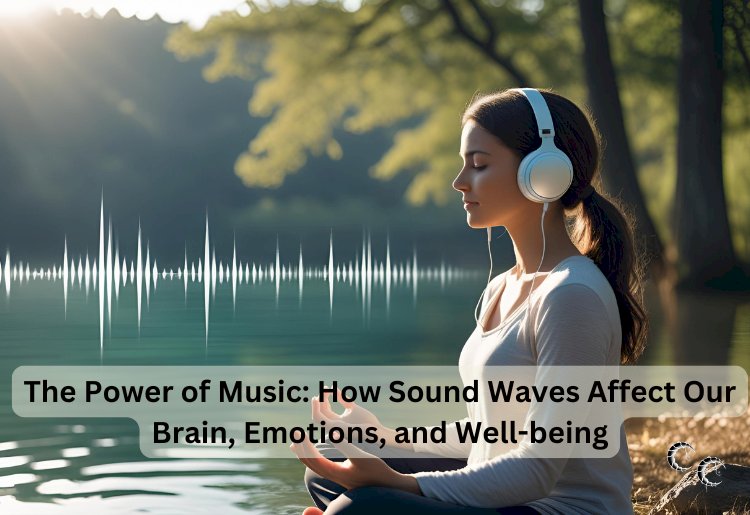The Power of Music: How Sound Waves Affect Our Brain, Emotions, and Well-Being

Music is more than just a form of entertainment—it is a powerful force that deeply influences our brain, emotions, and overall well-being. From ancient rituals to modern therapy, music has been used to heal, inspire, and connect people across cultures and generations. Understanding how sound waves interact with our minds and bodies reveals why music holds such a profound place in human life.
How Sound Waves Interact with the Brain
When we listen to music, sound waves travel through the ear and are converted into electrical signals that the brain processes. Different elements of music—such as rhythm, melody, and harmony—activate various brain regions including:
-
Auditory cortex: Processes sound features like pitch and volume.
-
Limbic system: Involved in emotional responses, triggering feelings of joy, sadness, or nostalgia.
-
Motor areas: Stimulate movement and coordination, often causing us to tap our feet or dance.
-
Prefrontal cortex: Linked to attention, memory, and decision-making, which explains how music can boost focus and recall.
This complex neural interplay explains why music can evoke vivid memories or change our mood almost instantly.
Emotional Impact of Music
Music has a unique ability to influence emotions, sometimes more powerfully than words or images. Listening to a soothing melody can reduce anxiety and stress by lowering cortisol levels, the hormone associated with stress. Conversely, upbeat and fast-paced tunes can energize and motivate us, enhancing productivity and mood.
The emotional effects of music are also harnessed in:
-
Music therapy: Used to support mental health, help patients cope with trauma, and manage pain.
-
Social bonding: Shared musical experiences foster connection and empathy between people.
Music and Well-being
Regular engagement with music—whether through listening, singing, or playing instruments—offers numerous health benefits:
-
Stress reduction: Calming music promotes relaxation and lowers blood pressure.
-
Improved sleep: Gentle music before bedtime can enhance sleep quality.
-
Cognitive enhancement: Learning and playing music boost brain plasticity and executive function.
-
Emotional resilience: Music helps regulate emotions, improving mood and reducing symptoms of depression.
Why Music Matters in Everyday Life
Incorporating music into daily routines can be a simple yet powerful tool for enhancing well-being. Whether it’s starting your day with uplifting songs, using calming playlists to unwind, or connecting with others through shared music tastes, the benefits ripple through mind and body.
Conclusion
The power of music lies in its ability to influence our brain and emotions through the physical vibrations of sound waves. This profound connection enriches our lives, improves mental and physical health, and strengthens social bonds. By embracing music’s therapeutic qualities, we can unlock new pathways to joy, healing, and well-being.






























